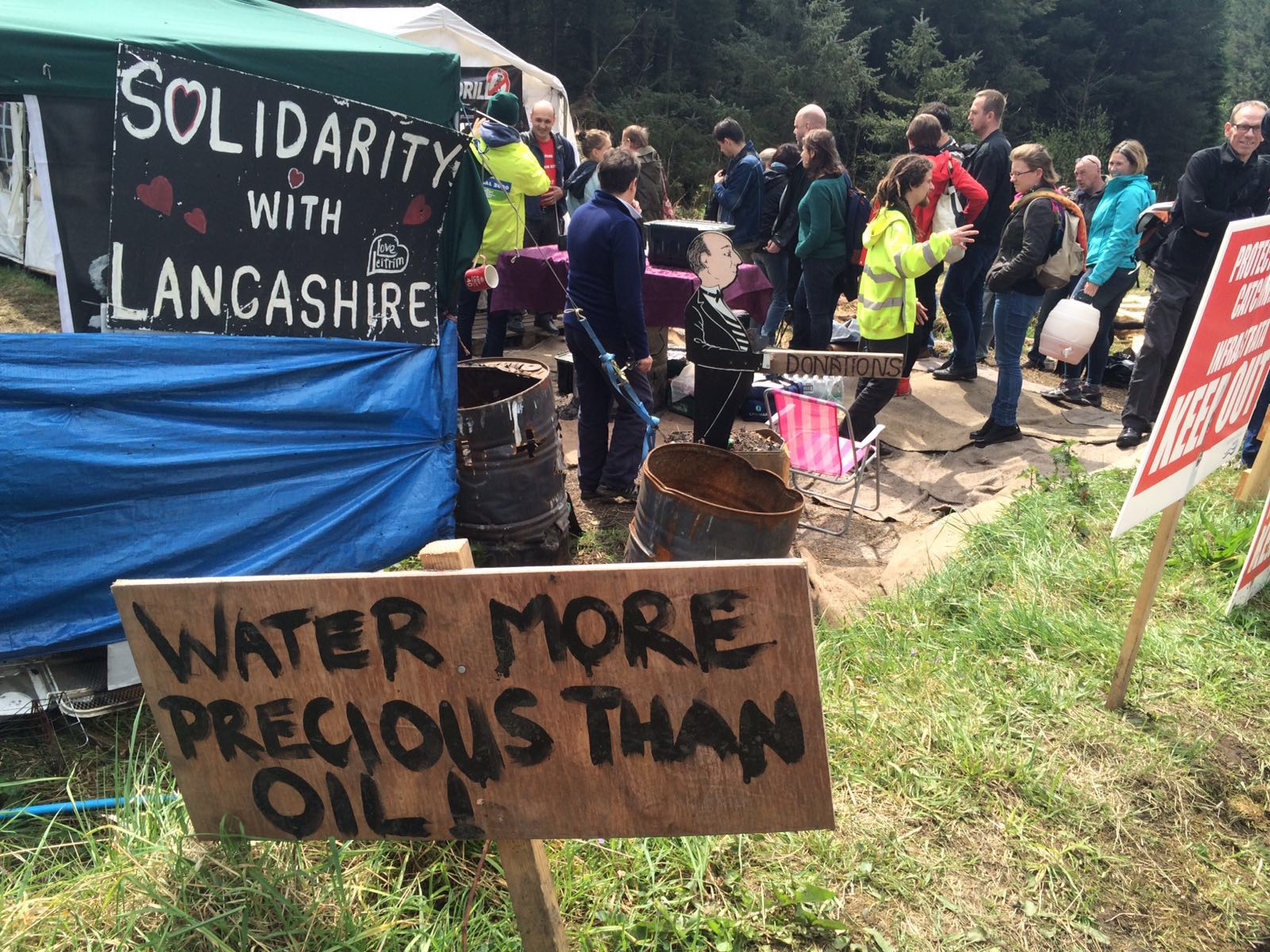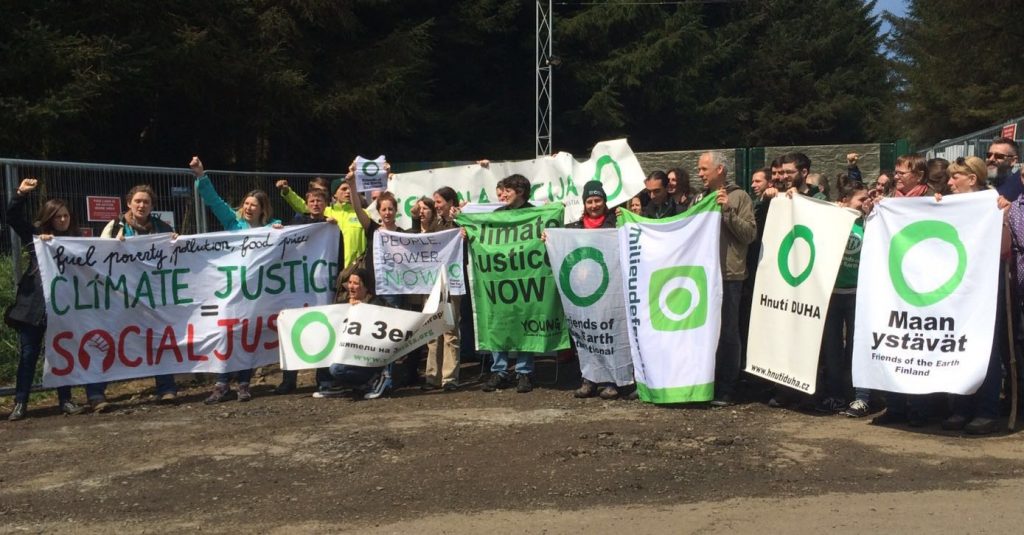Activists from across the Friends of the Earth Europe network stood in solidarity today with local campaigners resisting controversial oil and gas exploration in Woodburn Forest, Northern Ireland, just outside Belfast.
The drill site, yet to receive proper planning permission and being challenged in court, is located close to a reservoir, and is in a protected water catchment area. Exploratory drilling has commenced, which requires the use of toxic chemicals, and there are risks of spillage only 380 metres from the public water supply.
Magda Stoczkiewicz, director of Friends of the Earth Europe, said:
“We are witnessing a fossil fuel company riding roughshod over community concerns in pursuit of the last drops of oil and gas. Standing in solidarity with the local people of Woodburn, who are fighting to protect their water, their forest and our climate, is simple necessity.”
The publicly-owned water company, NI Water, granted the lease to oil company InfraStrata for 50 years, and a drilling rig was brought onsite on Monday. Local activists resisting the exploratory drill site have been met with heavy-handed policing, and a number arrested.
Jagoda Munic, chair of Friends of the Earth International, said:
“I’m glad to stand shoulder to shoulder with the community in Woodburn. We simply can’t afford to open up any new areas to fossil fuel extraction.”

Friends of the Earth groups in Ireland, Scotland, England, Wales and Northern Ireland are calling for an end to all onshore extraction of fossil fuels in Britain and Ireland by 2020. This requires bringing an end to opencast coal mining in Britain, an end to burning peat for electricity in Ireland and a ban on fracking across all the jurisdictions on these islands.
The group also visited Lough Neagh, a Natura 2000 protected nature site in Northern Ireland, where sand dredging continues without planning consent or legally required assessments on the impacts to the environment and biodiversity. Fifty-million tonnes of sand have been dredged in the last 35 years. The site has witnessed chronic declines in fish and bird species.







